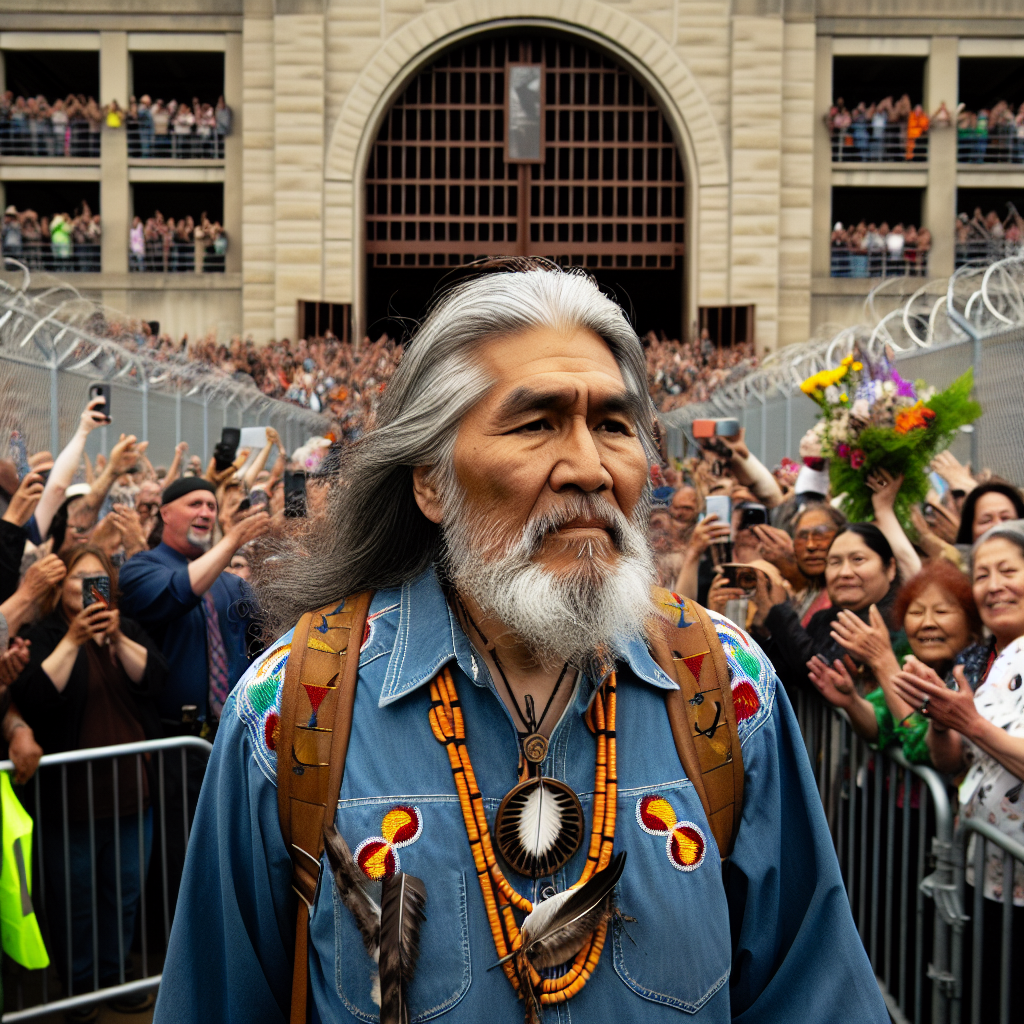Native American Activist Leonard Peltier Freed from US Prison
Native American Activist Leonard Peltier Freed from US Prison
Introduction
Leonard Peltier, a prominent Native American activist, has been released from a US prison after decades of incarceration. His release marks a significant moment in the ongoing dialogue about justice and indigenous rights in the United States.
Background
Leonard Peltier, a member of the American Indian Movement (AIM), was convicted in 1977 for the murder of two FBI agents during a 1975 shootout on the Pine Ridge Indian Reservation in South Dakota. His trial and subsequent imprisonment have been subjects of controversy and debate for years.
Key Points of Controversy
- Questionable Evidence: Critics have long argued that Peltier’s conviction was based on questionable evidence and alleged misconduct by the prosecution.
- Human Rights Concerns: Numerous human rights organizations, including Amnesty International, have campaigned for his release, citing concerns over fair trial standards.
- Symbol of Indigenous Struggle: Peltier has become a symbol of the broader struggle for Native American rights and justice.
Reactions to His Release
The release of Leonard Peltier has elicited a wide range of reactions:
- Support from Activists: Many activists and supporters have celebrated his release as a victory for justice and indigenous rights.
- Mixed Public Opinion: While some view his release as overdue, others remain divided on the implications of his conviction and subsequent freedom.
- Political Implications: The decision to release Peltier may influence ongoing discussions about criminal justice reform and indigenous issues in the US.
Conclusion
Leonard Peltier’s release from prison is a pivotal event that underscores the complexities of justice and indigenous rights in America. While his freedom is celebrated by many, it also reignites debates about the fairness of his trial and the broader treatment of Native Americans within the US legal system. This moment serves as a reminder of the ongoing need for dialogue and reform in addressing historical and contemporary injustices faced by indigenous communities.






































